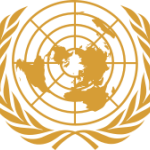- Industry: NGO
- Number of terms: 31364
- Number of blossaries: 0
- Company Profile:
The United Nations Organization (UNO), or simply United Nations (UN), is an international organization whose stated aims are facilitating cooperation in international law, international security, economic development, social progress, human rights, and the achieving of world peace.
キャサリン ・ サンバ パンサは 2014 年に中央アフリカ共和国の初の女性大統領になったときに歴史を作った。彼女は不安定性と暴力の国の進行中の内戦からの結果の間で暫定大統領の位置を取った。以前は、バンギの市長として勤務。彼女は中央アフリカ共和国の宗教紛争にもかかわらず軍縮を奨励しています。
Industry:Politics; History
Sylvie Kinigi was both Prime Minister and acting President for the nation of Burundi in Southeast Africa. She served the public in these positions concurrently, from 1993 to 1994, following an attempted coup that resulted in death of Melchior Ndadaye, the previous president. This is important, as she not only did hold power at a crucial time of Burundi history, but she was also the first woman to hold both the Prime Minster and Presidential seat. As an armed conflict took place between Burundi’s primary ethnic groups—Hutus and Tutsis—Sylvie Kinigi was determined to support unification. In the following elections in 1994, Cyprien Ntaryamira was appointed president, and Sylvie Kinigi left the world of politics.
Industry:Politics; History
Ruth Perry took office as the leader of Liberia’s transitional government following the end of a seven year long civil war in September of 1996. Ruth Perry oversaw the completion of the disarmament process and encouraged the hope and stability necessary for Liberia to hold democratic elections in 1997. She was previously involved in politics as Senator of Grand Cape Mount County. Ruth founded the Perry Center, an organization which encourages children’s rights, peace, and development throughout Africa. She was nominated for the Nobel Peace Prize in 2005.
Industry:Politics; History
Mame Madior Boye, elected in 2001, was the first female Prime Minister of Senegal. She worked under the supervision of President Abdoulaye Wade until 2002. In 2004, she became the African Union’s Special Representative for the Protection of Civilians in Armed Conflict.
Industry:Politics; History
Cissé Mariam Kaïdama Sidibé became the first female Prime Minister of Mali in 2011. In 2012, following a military coup, Sidibe was removed from her position. Her introduction to national politics came when in 1991 she was appointed as Special Adviser to interim President Abadou Toumani Touré and Minister of Planning and International Cooperation. Throughout her career, she also worked as Minister of Agriculture and Minister of Rural Development.
Industry:Politics; History
Rose Francine Rogombé was both the first female acting President and the first female President of Senate in Gabon. The senator of Lambaréné, became President of the Senate in 2009; shortly thereafter, she was named acting President upon death of President Omar Bongo. Having studied law in France, Rogombé also served as a magistrate, Secretary of State for the Advancement of Women and Human Rights, and Vice President of the Special Criminal Court.
Industry:Politics; History
Luisa Diogo became the first female Prime Minister of Mozambique in 2004. Having studied economics, she previously worked as the Minister of Planning and Finance, the National Budget Director of Mozambique’s Finance Ministry, and a World Bank officer. Diogo also works passionately for the improvement of women’s rights throughout Mozambique and Africa as a whole. She is a member of a variety of organizations focused on these issues including the Network of Women Ministers and Parliamentarians (MUNIPA) and the Council of Women World Leaders.
Industry:Politics; History
Maria do Carmo Silveira was Prime Minister of São Tomé and Príncipe, a small island off the Western coast of Africa, from 2005 and 2006. Silveira also served as the governor of her nation’s Central Bank. As Prime Minister, her paramount goal was to promote macroeconomic stability.
Industry:Politics; History
Nkosazana Dlamini-Zuma is a South African politician and activist. While studying Zoology and Botany at the University of Zululand in the 1970s, she became active in the African National Congress (ANC) and the South African Student Organization. In 1976, she left the country to study medicine at the University of Bristol. After President Nelson Mandela was elected in 1994, she was appointed to his administration as Minister of Health. She later served as Minister of Foreign Affairs, Minister of Home Affairs, and finally, Chairperson of the African Union. A champion of peace and women’s rights, Dlamini is the first woman to the lead the African Union.
Industry:Politics; History
Joyce Banda was both the first female President and first female Vice President of Malawi, a country of Southeast Africa. She became President in 2012 after death of President Bingu wa Mutharika. Banda’s previous political roles include Member of Parliament, Minister for Gender, Children’s Affairs, and Community Services. She founded a host of organizations for these issues, such as the Joyce Banda Foundation and the National Association of Business Women.
Industry:Politics; History
